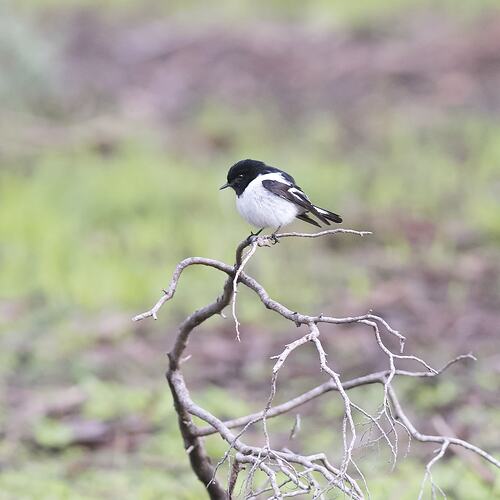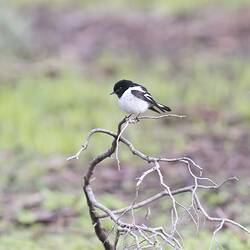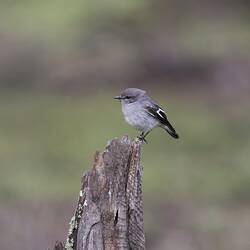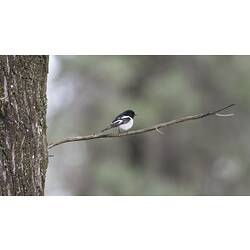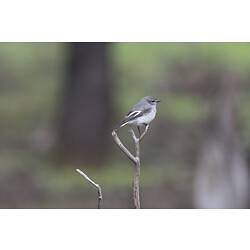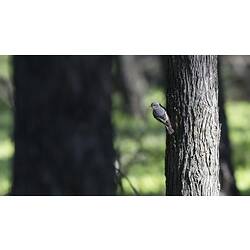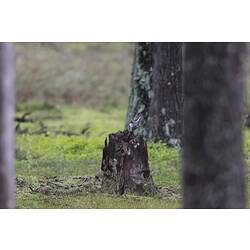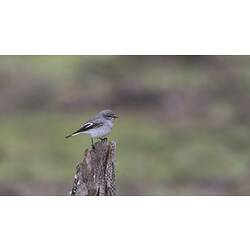General Description
Males are black on the head, back, wings and tail. A white line down the centre of the wings is visible in flight, otherwise appearing as white wing bars when perched. Shoulder and sides of tail white. Underside white, except for under tail, which is greyish. In females the black is replaced by grey-brown; they are pale grey on the belly, with an obscure dark line from the bill through the eye. Juveniles are similar to females but brownish and heavily streaked with white on the forebody. To 16 cm.
Biology
Usually seen alone or in pairs. Flies out from a perch to snatch insects from the air, ground or other surfaces. Resident. May live for more than 9 years. Reproduces Aug-Dec. Within their home range, pairs defend a breeding territory. Other birds sometimes assist pairs to raise the young. A cup-shaped nest is made from plant material bound with spider web, often decorated with bark or lichen, lined with grass, fur or other soft substances, and positioned in a forked branch. Eggs are various shades of green, with a brown wash darkest at the larger end. Clutch size 1-4, normally 2-3. Mostly only the female incubates, for a period of 14-17 days. Both sexes feed the nestlings. After 12-14 days the young leave the nest, and are fed by their parents for up to 4 weeks more. Four subspecies occur in different regions of Australia. The subspecies from the Tiwi Islands, Melanodryas cucullata melvillensis, is listed as Critically Endangered in the Northern Territory.
Distribution
Across Australia.
Habitat
Open woodland and shrubland.
More Information
-
Animal Type
-
Animal SubType
-
Brief Id
Large robin. Males with a black hood, back, wings and tail, white underneath; females are grey-brown.
-
Colours
Black, White, Brown
-
Maximum Size
16 cm
-
Habitats
-
Diet
Carnivore
-
Endemicity
-
Commercial
No
-
Conservation Statuses
CITES: Not listed, FFG Threatened List: Vulnerable, EPBC Act 1999: Endangered, IUCN Red List: Least Concern
-
Taxon Name
-
Common Name
Hooded Robin
-
Kingdom
-
Phylum
-
Subphylum
-
Class
-
Order
-
Family
-
Genus
-
Species Name
cucullata
